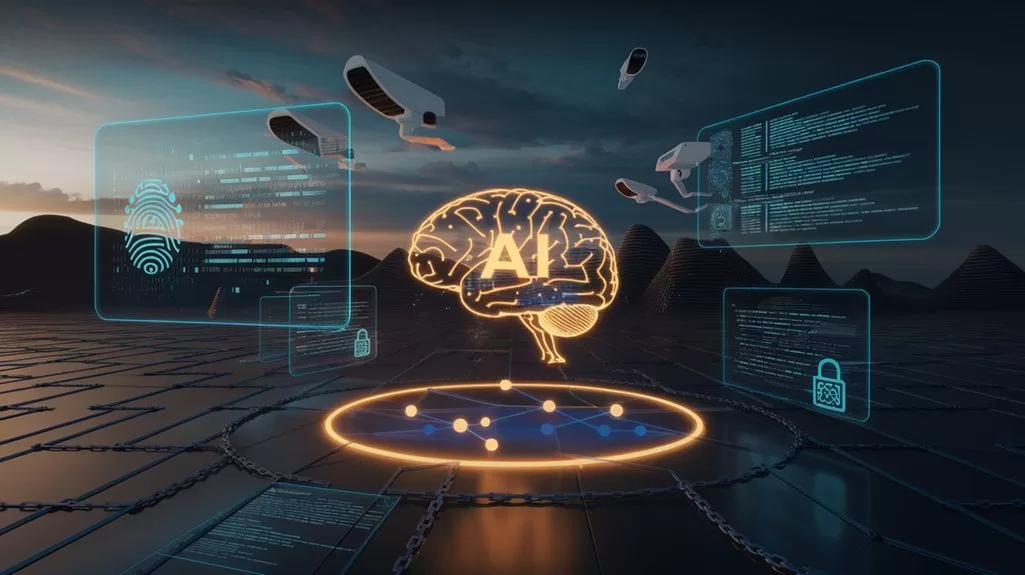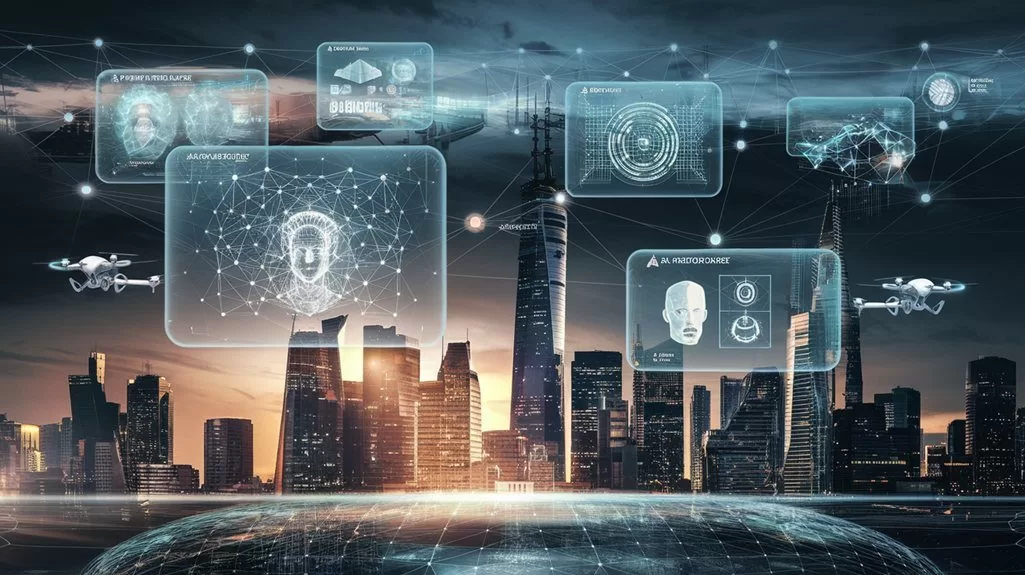Artificial General Intelligence might be arriving sooner than we think, although opinions vary—2026, they say. But let's not get ahead of ourselves. Privacy implications loom large with AGI potentially knowing too much. Skeptics say 2060, optimists say 2030. Who to trust? Either way, privacy concerns are serious, while the potential for global problem-solving can't be ignored. A fine line. The conversation is just getting started, and the implications are stunningly vast.
Key Takeaways
- AGI predictions vary widely, with some experts suggesting it could arrive as early as 2026.
- Privacy concerns are heightened by the potential of AGI systems to access extensive personal information.
- The definition and scope of AGI remain unclear, contributing to differing predictions and expectations.
- Ethical guidelines and global cooperation are necessary to address privacy and security issues related to AGI.
- Current AI technologies lack the independent reasoning and learning capabilities expected of AGI.

Although predictions about Artificial General Intelligence (AGI) are all over the map, ranging from a few years to centuries, one thing is clear: the conversation is heating up. It's a hot mess of estimates, with the CEO of Anthropic going all-in for 2026 while AI researchers lean towards 2040. Entrepreneurs, ever the optimists, say 2030. And let's not forget the historical perspective—before large language models, scientists were betting on 2060.
The AGI timeline is a hot mess, with predictions from 2026 to 2060.
But who cares about history when quantum computing might turn the whole timeline on its head?
The reality is, this isn't just a numbers game. These AGI timelines come with a truckload of privacy concerns. Imagine an AI system that knows everything about everyone—because that's where we're headed if AGI arrives prematurely. Who needs privacy when you have AGI, right? But seriously, the ethical implications are staggering. The idea that AGI could misalign with human values isn't just theoretical; it's a real fear. Misaligned systems could wreak havoc on privacy and security, potentially making our current data breaches look like child's play. Privacy safeguards and algorithm transparency become even more crucial in the face of such potential risks.
But let's not get carried away with doom and gloom. On the bright side, if AGI aligns well (big if), it could tackle global challenges, automate tasks, and maybe even make our lives better. Picture AGI solving sustainability issues or healthcare crises. Sounds like a utopia, doesn't it?
Yet, the path to AGI is littered with challenges. Current systems, like GPT-4, still can't reason or learn independently. They're like overzealous interns—good at specific tasks but clueless about the big picture.
The acceleration in AGI development reflects significant improvements in computing power and neural networks. Experts believe that machine intelligence lacks inherent limits compared to human intelligence, which fuels the optimism surrounding its potential. But let's be real. There's confusion galore about what AGI even means. The vague definitions don't help. And the limitations? Inconsistent results, reliance on flawed data, and biases. Not to mention, these systems can't grasp the social and environmental context of their actions. They're like toddlers in a china shop—potentially destructive because they simply don't know better.
In the end, the potential benefits of AGI are tantalizing, but the risks are intimidating. Global collaboration is necessary to establish ethical frameworks, but will it happen? Who knows? Neil Sahota, an expert in the field, emphasizes the importance of informed public discourse to navigate the uncertainties surrounding AGI. The only certainty is the uncertainty in AGI timelines and privacy concerns. As the debate rages on, one thing is clear: the stakes have never been higher.
References
- https://www.popularmechanics.com/science/a63922719/singularity-12-months/
- https://www.neilsahota.com/how-close-are-we-to-agi-and-what-stands-in-the-way/
- https://research.aimultiple.com/artificial-general-intelligence-singularity-timing/
- https://www.techpolicy.press/should-agi-really-be-the-goal-of-artificial-intelligence-research
- https://www.youtube.com/watch?v=13WkoB8RcJY









